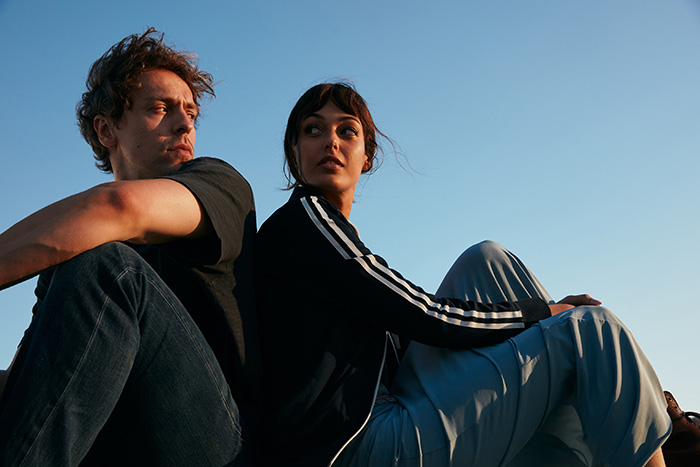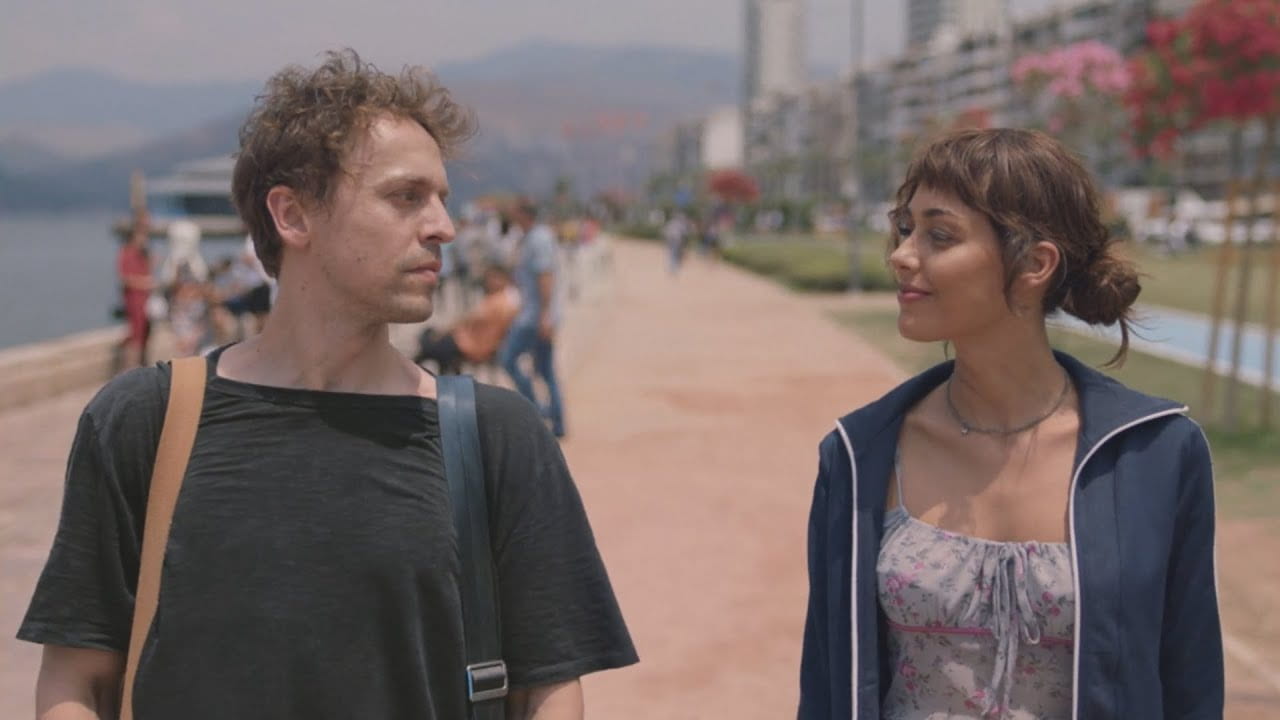One Way to Tomorrow, Netflix’s first original film from Turkey, is a pleasant if unimaginative tale of a chance encounter between two strangers who have more in common than they initially believe. The film’s somewhat confusingly translated title references the fact that the two main characters, Ali (Metin Akdülger), a lawyer, and Leyla (Dilan Çiçek Deniz), a violinist, have purchased one-way tickets on a 14-hour train journey from the Turkish capital city of Ankara to the seaport of Izmir. One Way to Tomorrow, which is adapted from the 2014 Swedish film How to Stop a Wedding, explores concepts of forgiveness, acceptance, and the intimacy that can quickly develop between strangers.
When the film opens on their meeting in a shared train compartment, Ali is curious and chatty about his traveling companion, while Leyla is reticent in an overplayed, cool-girl way. Ali is traveling to Izmir to participate in–and potentially stop–his ex-girlfriend’s wedding, and Leyla is going to see her childhood friend get married. In a rather predictable twist, it is soon revealed that the two are headed to the same wedding, and that their romantic lives are deeply intertwined: Ali’s ex-girlfriend is Leyla’s childhood friend, who is marrying Leyla’s ex-boyfriend of six years.
While Ali and Leyla have never before met, their relationships with the bride and groom mean that they know of each other, as well as know secrets about one other, and the film explores this unique relationship dynamic quite well. As time passes by, the two passengers bond over secrets and betrayals that inevitably link them together. This grief that consumes Leyla and Ali during their nighttime train ride eventually turns to acceptance and the resolution to begin their lives anew.
The problems with One Way to Tomorrow lie not with its plot, which is simple and moving, but with its rather amateur quality. The cinematography is shockingly poor, and the film is composed of a slew of aesthetically displeasing shots. Images of the characters staring out windows are quite overused in an attempt to evoke melancholy and pensiveness in the viewer, and whatever visual beauty could have been found in the train is not displayed on screen. While Ali and Leyla are for the most part compelling characters, the film consists mostly of dialogue, and some of it is quite cringy and unrealistic.

One Way to Tomorrow tries too hard to be quirky and eclectic, and although it fails in terms of originality, the film has a real sense of soul and of purpose. While the characters correspond to overused archetypes and the story is unoriginal, something quite charming emerges as the film progresses and Leyla and Ali’s complex relationship histories are revealed. It’s hard to miss the inspiration from the Before trilogy, and while this plot device is not wholly original, the idea of two strangers meeting in transit makes the film a thought-provoking view. Ultimately, One Way to Tomorrow is a pleasant and heartwarming film, but its lack of originality makes it not worth your time–Turkish cinema has much more to offer.
2.5/5 STARS
